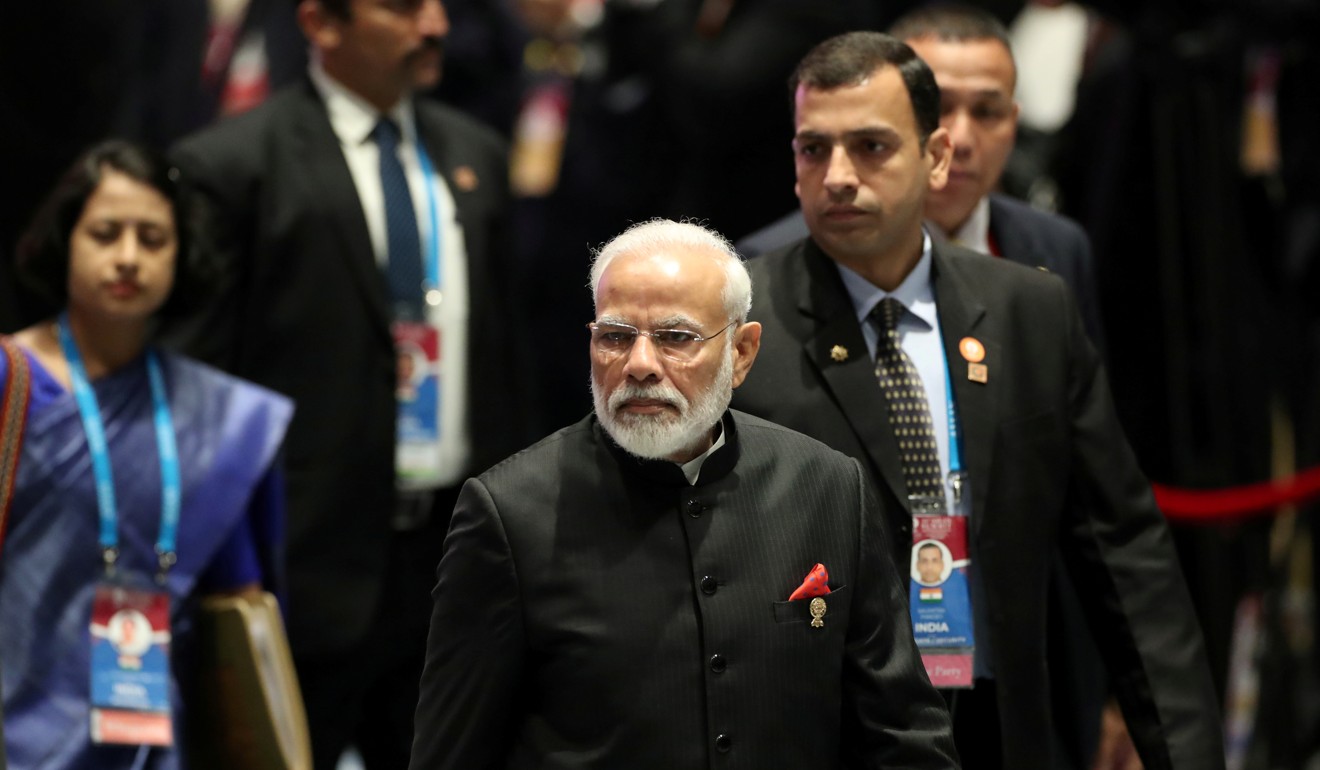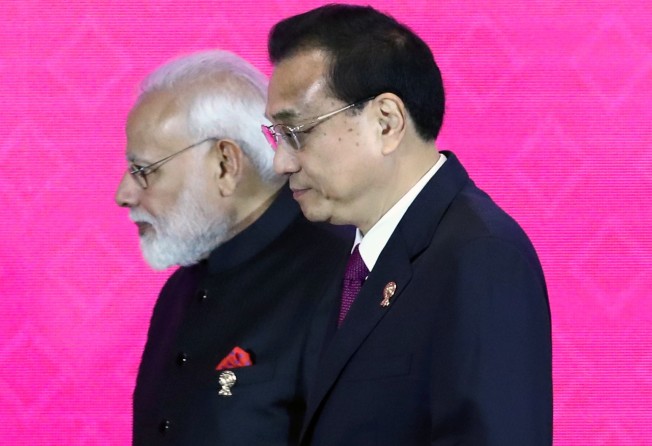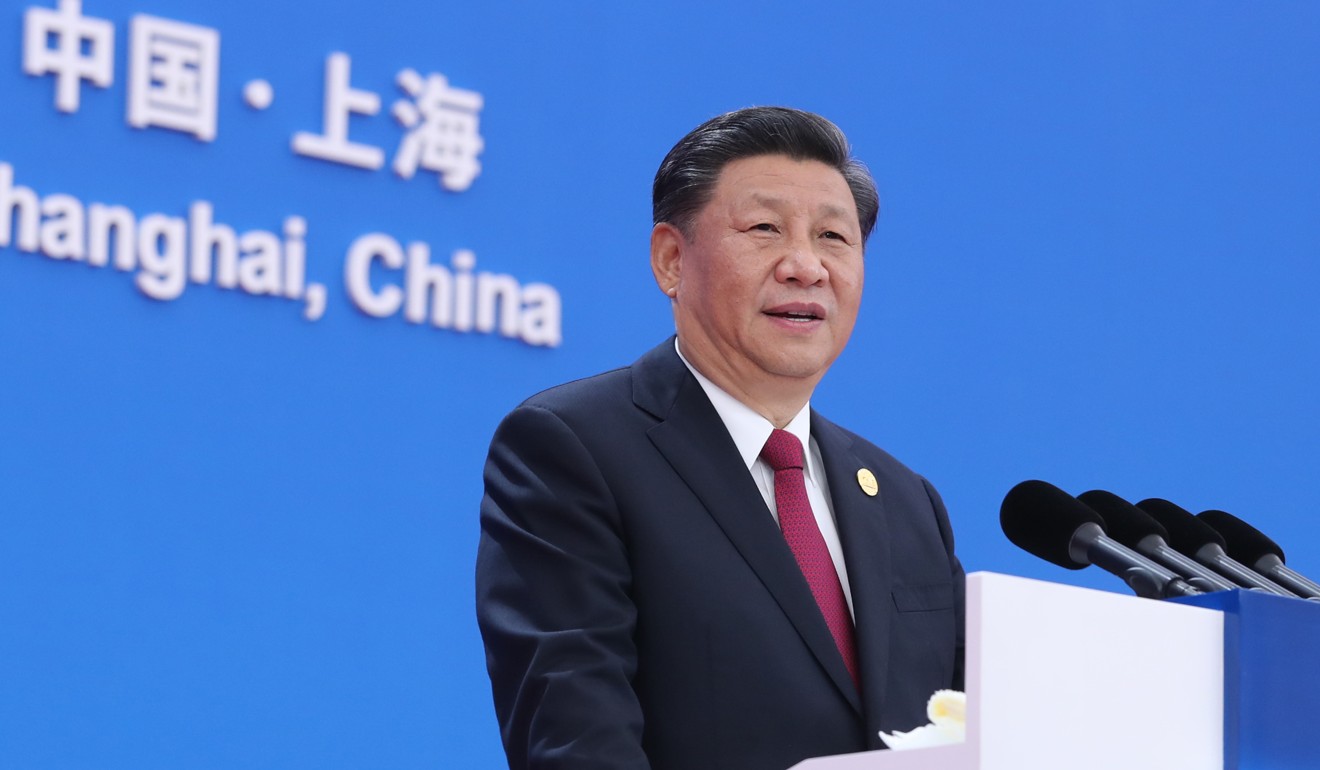
India out but China and Asia-Pacific partners to press on with RCEP free trade pact
- President Xi Jinping says ‘China is willing to sign a high-standard free trade agreement with many more countries’
- Observers say deal could pave way for other opportunities

China’s drive to set up a sweeping Asia-Pacific trade pact has suffered a setback with India’s decision to not sign up, but it could also push Beijing towards a “higher-standard” free trade agreement, according to Chinese observers.
Indian Prime Minister Narendra Modi announced in Bangkok late on Monday that his country would withdraw from the China-backed Regional Comprehensive Economic Partnership (RCEP) because the deal could damage India’s national interests.
The announcement came as trade officials and leaders of the 10 members of the Association of Southeast Asian Nations (Asean) as well as China, Japan, South Korea, Australia, New Zealand and India, had gathered in the Thai capital in a last-minute effort to conclude a pact that would involve about 39 per cent of global GDP.
A statement from the remaining 15 countries said they would begin formal work towards signing the pact in 2020 while trying to address India’s objections.

Chinese leaders have broadly endorsed free trade principles, while state media has portrayed free trade deals as a part of Beijing’s commitment to domestic reform despite doubts that opening-up is taking place fast enough and going far enough.
At the China International Import Expo in Shanghai on Tuesday, Chinese President Xi Jinping told world leaders and businesspeople that China “is an advocate of international cooperation and a supporter of multilateralism”.
“I am happy to know that the negotiations among the 15 members of RCEP have concluded, and hopefully it could be signed and come into effect as soon as possible,” Xi said.
“China is willing to sign a high-standard free trade agreement with many more countries … to join hands to push forward economic globalisation.”
Modi said his nation’s “farmers, traders, professionals and industries” had a stake in its decision to withdraw.
“When I measure the RCEP agreement with respect to the interest of all Indians, I do not get a positive answer. Therefore, neither the talisman of Gandhiji [India’s late spiritual and political leader Mahatma Gandhi] nor my own conscience permit me to join RCEP,” Modi said.
China, Japan and Australia said that the door would be open to India after the deal was signed.

“India has significant outstanding issues, which remain unresolved,” the 15 countries said in a statement. “All participating countries will work together to resolve these outstanding issues in a mutually satisfactory way. India’s final decision will depend on a satisfactory resolution of these issues.”
Deborah Elms, executive director of the Asian Trade Centre consultancy in Singapore, said the absence of India would be a loss to New Delhi as well as the other 15 countries, because the “political and economic benefits of including India exceed [those of] having India out”.
“Politically, it means that RCEP covers Asia minus India,” she said. “As a platform for managing trade or economic relations in the region, the lack of a major player is important.
“Without RCEP, there are no obvious ways to address the obstacles that make doing business in India so difficult and it means that India will remain outside regional value chains.
“The gap between India and the rest of the region is likely to widen.”
Even without India’s vast market, RCEP would still be the first and the biggest multilateral free trade agreement that Beijing had signed, Chinese observers said.
Beijing has pinned its hopes on the pact to give impetus to its economy, which has been hit by a trade war with the US.

He Ping, an associate professor in political economy at Fudan University in Shanghai, said that under such a multilateral deal, Beijing could also “indirectly” establish an free trade area with neighbours such as Japan, and it could also complete a deal it hopes to seal with Seoul and Tokyo.
He said that if India were not part of the agreement it would have a limited effect, as access to India’s highly protected market was not a high priority for the remaining RCEP members.
He said he was optimistic that India would join before the signing or could join as its domestic economy allowed.
“At the same time, the 15 nations could seek a higher-standard free trade agreement and take that step at a fast pace,” He said.
Tu Xinquan, a professor at the University of International Business and Economics, said hopes had risen of establishing an Asia-Pacific free trade deal combining RCEP with the 11-member Trans-Pacific Partnership (TPP).
RCEP is often seen as a China-supported response to the TPP. US President Donald Trump pulled the United States out of TPP talks in 2017 before the agreement was signed. The partnership involves Australia, Brunei, Canada, Chile, Japan, Malaysia, Mexico, New Zealand, Peru, Singapore and Vietnam.
With its stricter common standards on labour issues, environmental protection and dispute resolution, it is also seen to be more ambitious than RCEP.
Tu said that as with the partnership, the remaining members of RCEP had decided to move on. If India and the US, with their respective reasons, decided to step away from regional free trade deals, the likelihood of combining the partnership and RCEP would be greater and easier to achieve, he said.